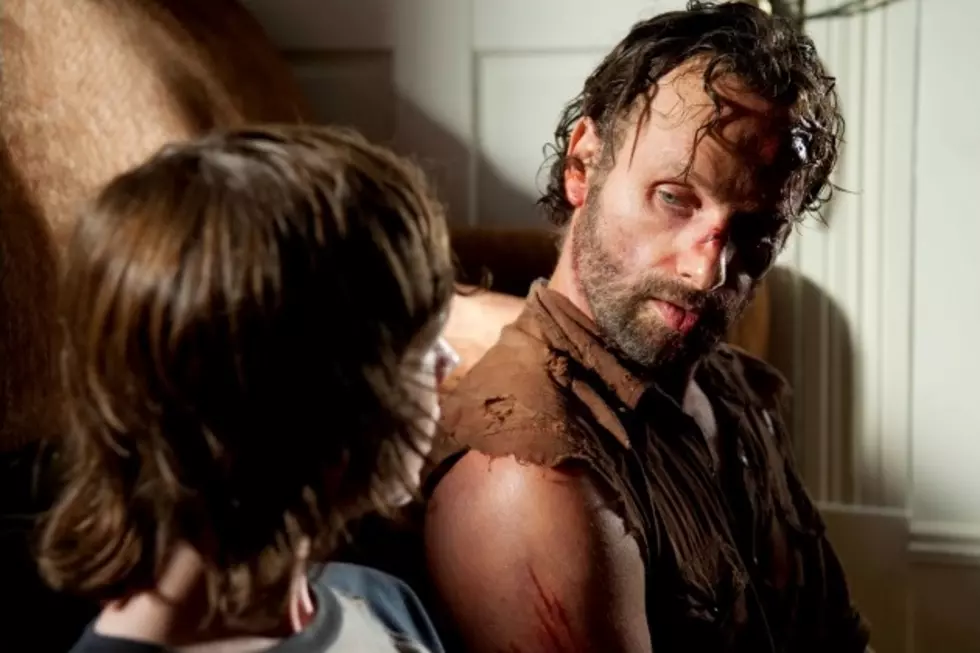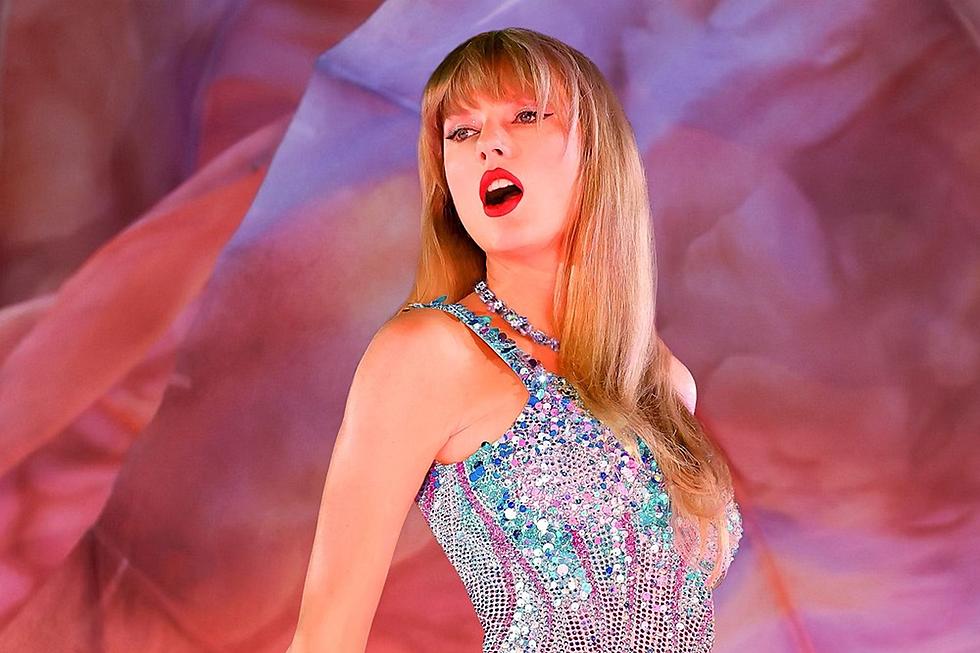
‘The Walking Dead’ Is As Good As It Will Ever Be: A Rebuttal
AMC zombie drama 'The Walking Dead' has divided critics and fans alike over the course of its first four seasons, weaving in and out of comic storylines to tell a unique tale whose effectiveness can often be as bleak as the zombie apocalypse itself. It may not ever live up to the comics, but is it beyond saving?
[Ed. note: Yesterday, Jacob Hall wrote an editorial on how 'The Walking Dead' will "never be as good as the comics." It was a controversial opinion, to say the least. Today, we allow Kevin Fitzpatrick, who covers 'The Walking Dead' for us here on the site, a rebuttal.]
‘The Walking Dead’ is an exceptionally weird TV series. Of course, all TV series are weird in the sense that they adapt a collective experience of stories into a palatable vision that matches the personality of its creators and the network it airs on, but adapted shows like ‘The Walking Dead’ or ‘Game of Thrones’ have a few major question marks permanently attached. They draw from revered source material, though the scope of the original work would prove far too expansive to directly adapt, forcing producers to vary their approach to the story, both in a manner that keeps the basic beats unexpected, but still provides something for hardcore fans.
If ‘The Walking Dead’ as a comic continues on as indefinitely as series creator Robert Kirkman might claim, how might that possibly look for an increasingly expensive TV series, already deep into its fourth season? AMC doesn’t exactly have the scripted history to gauge how long its most popular series might run, especially as ‘The Walking Dead’ has long been a more profitable empire than its award-winning predecessors ‘Breaking Bad’ or ‘Mad Men.’ Even now, the AMC hit has arguably returned to an open-ended sense of exploration and excitement from the abandonment of its prison setting, but what shelf-life could either the series or its source material even have, other than to wax poetic about the human condition, kill off its most beloved characters, and move into a new setting every few years?
My colleague Jacob Hall recently wrote about the ways in which ‘The Walking Dead’ could never live up to its comic source material, though I would say that argument in and of itself only goes so far. Every showrunner who has breezed through the series, as well as creator Robert Kirkman would surely advocate that the series isn’t meant to live up to its comic predecessors, but rather cherry-pick some of the more interesting stories and characters to tell its own story in a way that works best for TV. The comics, for instance, drew a much more linear conflict between Rick’s group of survivors and the Governor at Woodbury, which ended in a spectacularly bleak fashion that for many, myself included, truly cemented ‘The Walking Dead’ as a bold, and blackened tale unlike anything we’d ever seen before. The TV version got about halfway through this story, remixing its portrayal of the Governor as a tortured man, only to spare his life in season 3, humanize him a bit, and return to a more direct version of the same conflict in season 4.
That was the kind of affecting despair the original ‘Walking Dead’ captured so well; a bleak, never-ending cycle of survival that made you appreciate the quieter moments, and the simple joys of being alive.
Of course, fans would be hard-pressed to argue that AMC’s incarnation stumbled in this storyline, or at the very least, allowed practical aspects like production costs and actor popularity to overtly influence creative decisions, milking the Governor’s return as it toyed with the idea of a zombie-flu, and shuffled a few redshirts loose of their mortal coils. The fourth season didn’t begin with near of the same excitement that followed the third; we had no Michonne, Governor or prison to look forward to, just more of the same tired shuffle that plagues the comic as inherent to the premise. What is ‘The Walking Dead,’ really, but one long story about the continued search for hope and freedom from despair, peppered with a few creative zombie kills and characters now and again?
Even as the show moves into such seemingly fertile territory as to introduce Abraham Ford and his cohorts, presumably following their same, as-yet unstated mission from the comics, I’d never really agree with Jacob that the series should necessarily owe any kind of allegiance to the books. It makes for an effective breed of hype, to speculate and anticipate the arrival of such intriguing characters, and I’d at least agree with Jacob that Abraham, Rosita and Eugene’s appearance means little if we don’t have enough character definition for Glenn, Rick or anyone else they might interact with, but I don’t watch to see if ‘The Walking Dead’ can evoke any similar kind of reactions to those felt by the readers.
I myself had never heard of the books before 2010, and spent a day or two catching up on volumes as a means to avoid dealing with a particularly horrible ongoing breakup. I remember leaving the store with an overwhelming sense of relief, if only to see that the world outside hadn’t ended, and that an abundance of living people still milled around about their happy lives. That was the kind of affecting despair the original ‘Walking Dead’ captured so well; a bleak, never-ending cycle of survival that made you appreciate the quieter moments, and the simple joys of being alive.
Jacob is right, AMC’s ‘Walking Dead’ can’t spend five minutes of screentime in lackadaisical dialogue, instead always feeling burdened by a sense of momentum that drags us along with it, rather then propel us to keep moving forward at our own pace. And yet, everyone seems to have their own idea of what ‘The Walking Dead’ should be. I loved the midseason premiere, a few grating moments with Chandler Riggs’ acting notwithstanding; it gave the story a smaller, still focus that allowed us to enjoy the little things like reading a book, or chowing down on 112oz of pudding in way only a child could appreciate. Contrast that with reactions to this past week’s “Inmates,” which burned through almost every lingering thread from the first eight episodes at a pace that I found difficult to enjoy, yet most would tout “Inmates” as the superior episode.
Reactions to the fourth season at large have been pretty varied, as ‘Walking Dead’ seasons go, though I find myself excited for the back eight episodes in a way I haven’t felt since the earlier seasons, which arguably carried with them a more optimistic sense of potential for the series at large. I don’t doubt that the AMC drama will showcase a much more limited scope than its source material (SPOILER WARNING, any permanent relocation to, or around Washington D.C. isn’t likely in the cards), but I have enough confidence that the series will chart its own course in the next season or so, keeping up with a few strengths that even the comics never developed. We might not know much about Rick apart from his wearily gruff determination, though a few characters like Carol at least have chartable narratives to follow, keeping us invested in their fates.
Some days are less gruff than others, admittedly.
Keep this in mind as pure speculation, but Jacob also brought up an intriguing point in discussion of our respective feelings on the series, in all its comic adaptations. The remaining episodes of the season (or potentially the next) could well introduce “The Hunters,” a particularly villainous group who occupied relatively little real estate within the books themselves, but who provided a drastic prism with which to see how much the core characters had been transformed from the early days, particularly in savagery. Should AMC incorporate the villains into the series, we’d be hard-pressed to imagine said transformation resonating as well, given the limited development of the TV characters, though I would still argue that AMC’s rendition shouldn’t be beholden to the comics in any strict regard.
If anything, fandom of AMC’s ‘Walking Dead’ can be as taxing as the franchise’s narrative drive overall, a bleak sort of optimism that things will continue on and on (don’t forget the spinoff!), with only a few pockets of hope here and again things might get any better. Obviously, that isn’t something one wants to say of a beloved TV series, particularly one with the critical pedigree to air on AMC, but I wouldn’t agree with Jacob that all hope is lost, at least yet. Splintering the characters into different groups allows the AMC drama to remove some of its obsessive focus on Rick as the unquestioned leader, getting to know everyone a bit better in a way that wouldn’t be possible with one central story. Even the comics rarely afforded us chances to see different groups off on their own, believing themselves the only survivors, instead focusing on Rick and Carl’s struggles after the prison.
In the end, ‘The Walking Dead’ will likely never live up to the critical expectation heaped on it since the pilot, but it remains an affecting, and original enough story to demand attention week after week, whether or not it follows a similar standard of quality to its comic predecessors. It’s certainly not going anywhere either, so we might as well make the best of it, and continue voicing demand for improvement, something the fourth season has at least shown a much steadier hand with.
What do you think? Is 'The Walking Dead' as good as it's ever going to get, or will the remaining fourth and fifth seasons offer up a bit of renaissance for the stalwart zombie drama?
More From ScreenCrush









